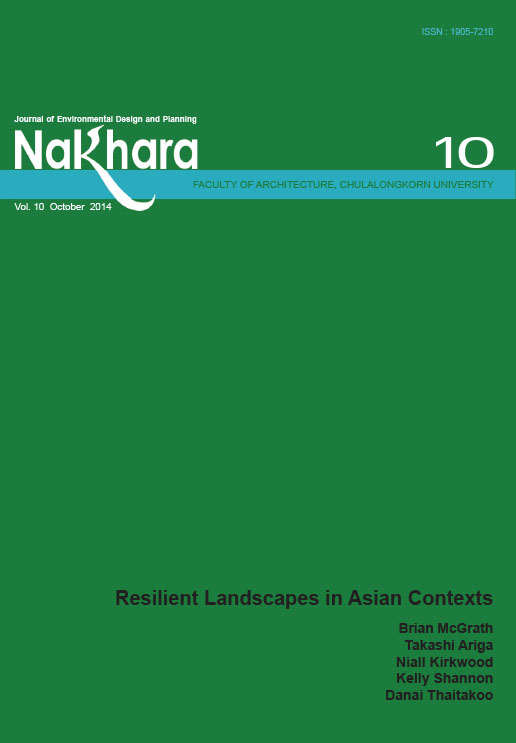The Impact of Historical Geography and Agricultural Land Development Processes on Wetland Restoration Methods Used to Create Ecological Networks: A Comparison of Japan and the Netherlands
Main Article Content
Abstract
In the Osaka area in the 1880s, rice was grown mostly in dry fi elds in upland areas, and a few paddy fields were situated on the natural wet landforms along the major rivers and streams on the Osaka Plain. As the area developed, dry fi elds became irrigated, and the lowland fi elds were fi lled and
converted to urban land uses. For the Osaka city region, developed in this historical context, an ecological network has been proposed by the national government in 2006. The proposal was partially infl uenced by ecological network planning in the Netherlands, and it focuses on spatial patterns and wetland restoration measures at a limited number of sites. However, its historical geography is not taken into consideration. Therefore we examined historical land-use changes in the Osaka area and then compared restoration projects in both countries. On the one hand, we found some similarities in wetland restoration processes and measures at unused industrial sites in reclaimed coastal areas in Japan (the Osaka Nankou Bird Sanctuary) and the Netherlands (the Oostvaardersplassen). There are, on the other hand, notable differences in appropriate wetland restoration measures in farmland areas. Some potential wetland restoration candidates in Japan
require either winter fl ooding or the resumption of labor-intensive agricultural practices in abandoned paddy fields, because many of these sites were naturally dry before the introduction of irrigation. In the Netherlands (e.g., at Tiengemeten), however, this was not a problem because areas are being converted from drained fields to natural wetlands. To conclude, regional considerations are therefore important when ecological networks are planned, and the perspective of historical geography is essential when networks are planned with wetland restoration as a core element.

